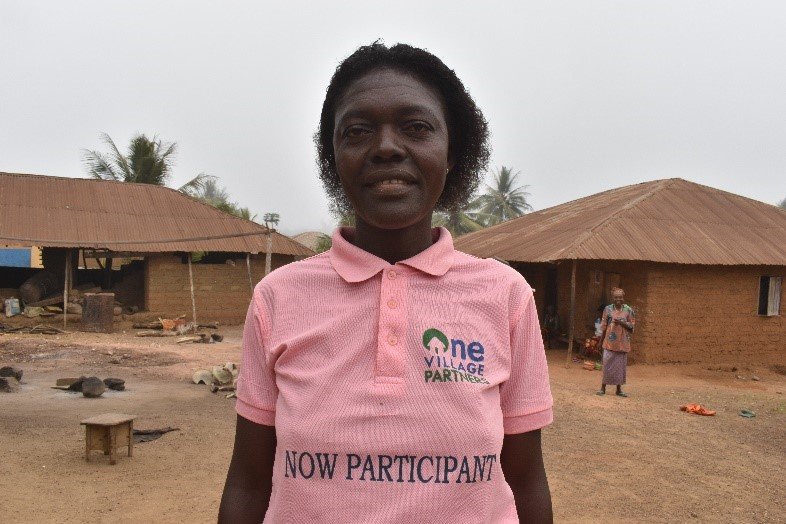Social Cohesion Tackles a Community’s Challenge
Most Significan Change Story Written by Nabieu Senesie and Solomon Aruna Yambasu.
Zainab Musa, a participant in the NOW (Nurturing Opportunities for Women) program, lives in the rural community of Bandajuma, Kailahun district of eastern Sierra Leone. With 1,410 people, Zainab recalled that the community lacked unity and that its members were unaware of the advantages of saving money and planning. Community leaders controlled unfairly and without accountability or transparency, and there were no emergency solutions available to pay for problems.
At the same time, community leaders engaged in corrupt practices, which further created conflicts between community members and leaders. Fines generated were only shared among leaders present, cases were presided over based on sentiment, and revenue for the community was shared among leaders to support their families, ignoring community development needs.
Zainab, a 30-year-old woman who lived in this community, was aware of these discrepancies. According to Zainab, the beginning of community unification came with OneVillage Partners' partnership with the community in 2017. To ensure sustainability after their cycle one project, community members participated in the Community Action program's latrine project and were educated on repair and maintenance. “I once traveled from Kenema and met the ACT community meeting in session where volunteer leaders presented a role play on repair and maintenance and the benefits of planning for the future,” Zainab explained. The role-play shifted community leaders’ mindset to take the lead in their responsibilities to sustain the projects implemented and adopt a repair culture.
With their mindset shifted, Bandajuma implemented lessons learned from the role-play. The community members saw an opportunity to create sustainable methods to generate community income. Leaders and members contributed money and loaned from the Village Savings Loan (VSL) to buy a Power Amplification (PA) system to generate income for the community’s development. The income generated from the PA system is divided into two; one half is saved for community development and the second half is used for the maintenance of the PA system.
The process of planning and working together as a community was initially tough as it was hard to encourage community members to participate in raising funds. However, as a community, members saw the positive changes in their leaders, and the pro-activeness of their acting town chief, community members formed seven communal groups, across the community that works to raise income for future community development.
This has changed the way Bandajuma approached development. Community members no longer contribute individually to community development as they used to. Conflict no longer exists among community members and leaders. There has been total unity restored in the community. “Every month, the household contributes One Leone for future community projects repair,” Zainab stated.
Finally, the community is proud of more than five thousand New Leones (NLe 5,000) in the community account (approximately $333), the town chief Joseph Babay confirmed.
“Leaders should be proactive in bringing their constituency together to plan to raise income for emerging issues before waiting for government/NGOs. Leaders, however, need to be friendly, transparent, and accountable to their subject for a peaceful and inclusive society,” Zainab concluded.
To support and empower communities’ like Bandajuma, click here.

